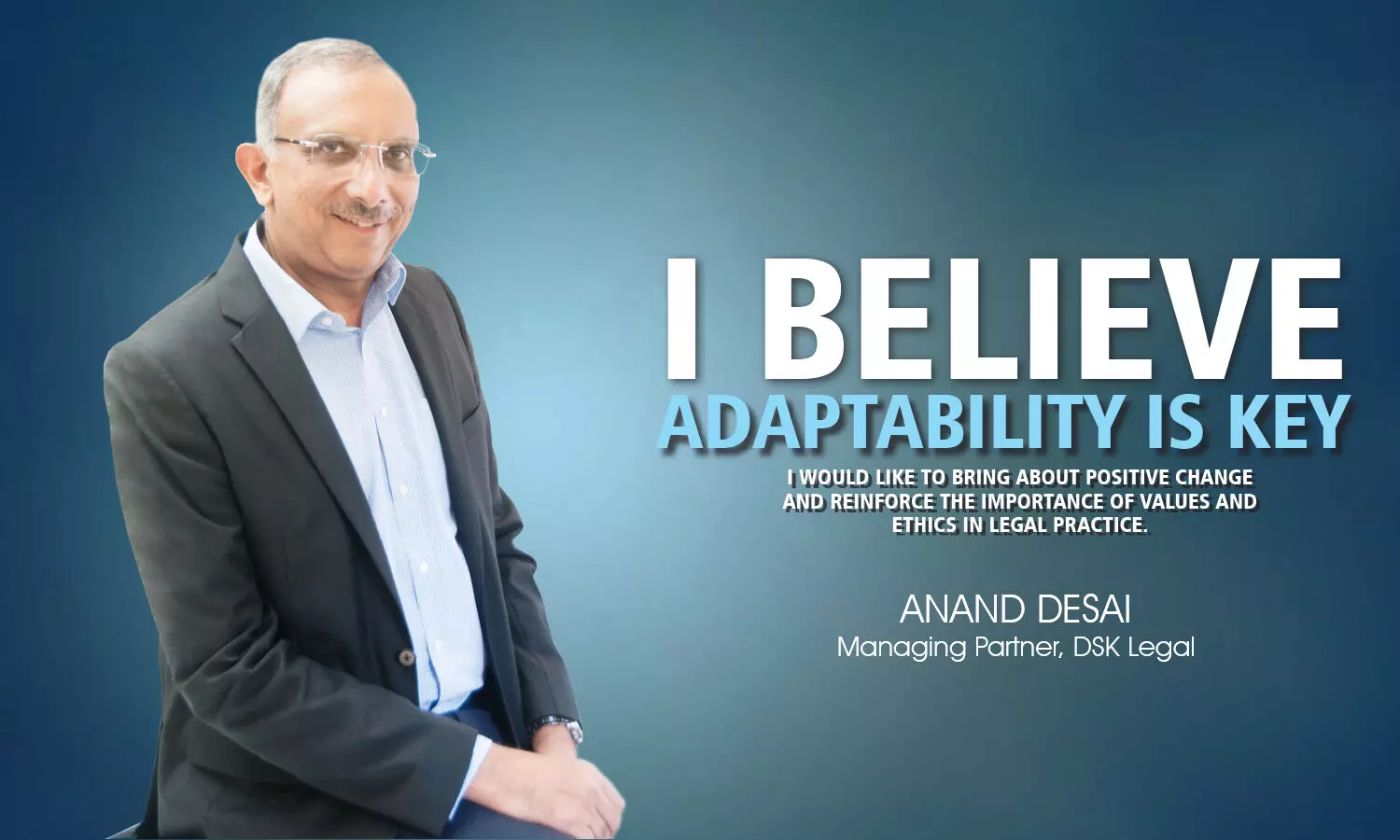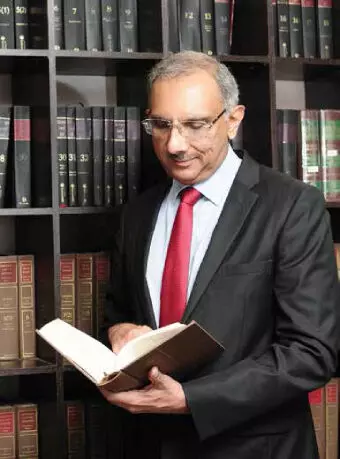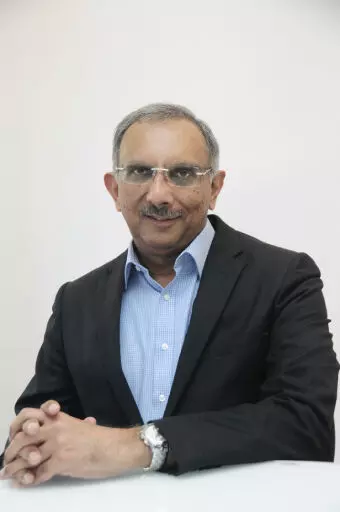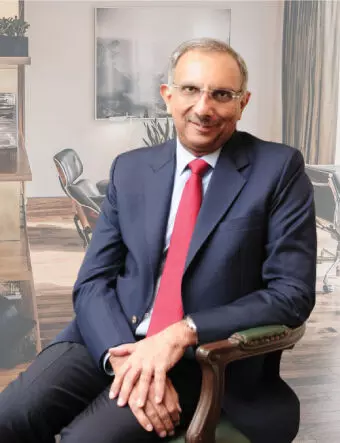- Home
- News
- Articles+
- Aerospace
- AI
- Agriculture
- Alternate Dispute Resolution
- Arbitration & Mediation
- Banking and Finance
- Bankruptcy
- Book Review
- Bribery & Corruption
- Commercial Litigation
- Competition Law
- Conference Reports
- Consumer Products
- Contract
- Corporate Governance
- Corporate Law
- Covid-19
- Cryptocurrency
- Cybersecurity
- Data Protection
- Defence
- Digital Economy
- E-commerce
- Employment Law
- Energy and Natural Resources
- Entertainment and Sports Law
- Environmental Law
- ESG
- FDI
- Food and Beverage
- Gaming
- Health Care
- IBC Diaries
- In Focus
- Inclusion & Diversity
- Insurance Law
- Intellectual Property
- International Law
- IP & Tech Era
- Know the Law
- Labour Laws
- Law & Policy and Regulation
- Litigation
- Litigation Funding
- Manufacturing
- Mergers & Acquisitions
- NFTs
- Privacy
- Private Equity
- Project Finance
- Real Estate
- Risk and Compliance
- Student Corner
- Take On Board
- Tax
- Technology Media and Telecom
- Tributes
- Viewpoint
- Zoom In
- Law Firms
- In-House
- Rankings
- E-Magazine
- Legal Era TV
- Events
- News
- Articles
- Aerospace
- AI
- Agriculture
- Alternate Dispute Resolution
- Arbitration & Mediation
- Banking and Finance
- Bankruptcy
- Book Review
- Bribery & Corruption
- Commercial Litigation
- Competition Law
- Conference Reports
- Consumer Products
- Contract
- Corporate Governance
- Corporate Law
- Covid-19
- Cryptocurrency
- Cybersecurity
- Data Protection
- Defence
- Digital Economy
- E-commerce
- Employment Law
- Energy and Natural Resources
- Entertainment and Sports Law
- Environmental Law
- ESG
- FDI
- Food and Beverage
- Gaming
- Health Care
- IBC Diaries
- In Focus
- Inclusion & Diversity
- Insurance Law
- Intellectual Property
- International Law
- IP & Tech Era
- Know the Law
- Labour Laws
- Law & Policy and Regulation
- Litigation
- Litigation Funding
- Manufacturing
- Mergers & Acquisitions
- NFTs
- Privacy
- Private Equity
- Project Finance
- Real Estate
- Risk and Compliance
- Student Corner
- Take On Board
- Tax
- Technology Media and Telecom
- Tributes
- Viewpoint
- Zoom In
- Law Firms
- In-House
- Rankings
- E-Magazine
- Legal Era TV
- Events
Anand Desai in conversation with Legal Era shares his thoughts on the burgeoning opportunities in India's legal landscape

Legal Era in Conversation with Anand Desai
Anand Desai in conversation with Legal Era shares his thoughts on the burgeoning opportunities in India's legal landscape and the equally compelling improvement areas in the domestic legal practices
LE: DSK Legal is a well-known brand in the fraternity. Would you mind sharing your journey with us?

I started my practise as a counsel in the Bombay High Court with the reputed senior advocate Mr. J.I. Mehta, who I learned by chance had been my grandfather's junior. It was an extremely rewarding experience working with him and the very illustrious colleagues in his chamber. I was fortunate to gain tremendous exposure and insights. After about 6 years I stepped away from the profession for a couple of years to explore other options, but then returned and joined a small firm. I realized that advising and helping a client strategizing from early on in a dispute helps build a stronger case. I also realized in the 1990s, that tax planning was a very large element of structuring commercial transactions, including direct and indirect taxes, and stamp duty. This hasn't changed, and significant effort continues to go into developing tax-efficient structures.
In India, tax structuring tends to be done more by accountants than lawyers. By the 1990s, Arthur Andersen had grown tremendously across the globe, as one of the then Big 5 international advisory firms, and in the late 1990s had started an affiliated network of independent law firms in several countries. I had worked on several client assignments with Arthur Andersen and other accounting firms, and was invited to establish an independent Andersen Legal member firm in India. This seemed a good option, and thus we established DSK Legal in April 2001 as a member firm of Andersen Legal, initially with 7 lawyers. I observed the benefits of a large organization having affiliated law and advisory network firms. Unfortunately, within a year of establishing DSK Legal, Andersen shut down and we were on our own.
Around that time some leading Indian law firms entered into relationships with foreign law firms. I believe this helped bring in systems and processes that were far more developed in international firms.
We have several excellent firms, many good people in them, but I feel that young lawyers in India need to specialize after building a strong broad-based foundation. Lawyers in developed economies usually don't even consider handling cases that are outside their area of expertise. Along with high professional standards, they are also conscious that they can be sued for professional negligence or malpractice. But in India, how many lawyers even consider this as a possibility?
Like all growing firms, we have had our share of hirings and attrition over time. However, what I believe has kept us going as a firm is the value that we provide to our clients, prioritizing their needs while enjoying the work we do, and doing the work that we believe we are good at rather than diving into areas of legal practice where we don't have the requisite expertise.

The question is can we try to bring about a system that is a collaborative effort between the government regulators, where all the applicable laws and regulations are simply drafted, and are crystal clear to a citizen or visitor to India?"
A principle that we live by is that we accept that we are not good at everything, and we are honest with our clients about it. I believe this has paid rich dividends in gaining client trust and confidence. We are building our practices holistically, and we accept that there will always be firms which will be better at certain practice areas, or for dealing with some situations, and we refer clients to them if we feel that they can provide better expertise than us.
LE: You have beautifully highlighted values and ethics in your journey. I think that stems from a lot of confidence and sense of security.
I believe it is not just a sense of security, but also honesty to oneself and one's client. Consider the medical field. Every part of the human anatomy has its own specialist, and patients are clear about which doctor they will consult for specific health conditions. I believe it is similar for the legal profession. For example, environment matters, criminal matters, tax matters, and corporate / commercial matters require different approaches, and each needs the lawyers to be updated on what are a very complex set of laws (including the law laid down in judgments of Courts), rules, regulations and other delegated legislation. Several lawyers assume that they can do it all, which I find worrying, because none of us can be experts at everything.
For example, in Europe, patent lawyers and agents only do patent work – which is a very technical area. To deal with patents you need a science background to start with and then go into specializations like engineering or chemistry. Many patent lawyers have a dual degree with law, because it requires an understanding of inventions that have industrial application. Most lawyers would not have the required in-depth understanding of such matters, even when explained to them.

I believe adaptability is key. I would like to keep doing what I can and try to bring about positive change, and bring more values in young lawyers and firms."
Hopefully, practice and sector expertise will get the right recognition in times to come. In my view it is about being true to what you're practicing, and understanding the rules and regulations by which we are governed.
LE: Would you say it requires a systemic change to change this perspective?
I think it is a mindset change to start with. One cannot legislate on what one should or should not be doing when it comes to client servicing. As I see it, it is a matter of how we discipline ourselves. All of us are trained to be lawyers, but when a client comes with a case, there are few lawyers who will turn them away even if the case is not within their area of experience or expertise. This is where self-discipline is required. Most lawyers will offer to find a way to navigate the case. This can be counter-productive, because if a client is unhappy with the service, it can reflect badly on our profession and our legal ecosystem as a whole.
LE: That sounds reasonable. Coming to the industry, are there trends or observations you'd like to highlight on the business of law in connection to the state of affairs across the world?
Firms have typically grown on the backs of their clients, especially American and English firms. Their geographical footprints have expanded based on their client's expansion and requirements. What is not spoken of enough is the fact that we are ultimately in the service industry, and the sooner we accept that, the less we will think we are some special category of professionals that clients are bound to respect and pay.
I believe it is also important to be clear how one wants to position a firm. It could be full service or boutique, or having particular practice or industry specialization, or be in a certain market segment – say doing mid-market or only the largest deals, or being very strong in a certain geography.
Let's take an example of another service industry. If you go to a particular hotel that is part of a chain of business hotels, you expect a certain standard that is consistent with other hotels in that chain, and you know it will be different from a luxury hotel. Similarly, if you travel with different airlines, the experience could be quite different. Hence, these service providers try and segment their offerings through appropriate branding, and try to retain customers through a loyalty program, or special offers. I feel Indian law firms should also identify the space or segment they want to be known for, and be consistent in their service offerings in that segment. Of course, that segment can change over time, but saying one offers all legal solutions for all problems to all clients is, in my view, counter-productive.
There is also a requirement for standardization in a firm. A "firm standard" that is understood and practised across the firm.
I also feel each firm needs to build their culture and systems consistently. In India, most law firms revolve around one or two marquee lawyers. This has been a trend for several years. But over time the firm has to grow bigger than the marquee lawyer/s. Preferably, no one person should be the fulcrum around who the firm revolves.
Our profession has grown a lot, but I feel the challenge in India is that there is not enough competition for complex legal work, which still typically goes to a handful of lawyers. Competition will grow with in-depth expertise being developed by Indian lawyers.
LE: Where do you think the gap lies and why aren't competent lawyers developing the required expertise?
I am not sure how many law colleges encourage students to consider building professional careers, as against taking a "job". It is a longer and harder journey to build a professional career, with all the risks it entails, but can be very rewarding and satisfying.
I realize that several young lawyers feel they need a good amount of money and a secured source of that money, and hence join a firm or an in-house legal team in a corporate house. But many then treat it as a "job", rather than a step in their professional growth path. I recall ICICI Bank and HUL being amongst the early movers to put large in-house legal teams together. Today, several corporates have in-house legal teams. Many law firms are also paying young lawyers very well, but several firms then slot their young lawyers into a practice team that then guides their career path, rather than each lawyer identifying and pursuing a path towards a specific area of expertise, albeit in line with the organization's strategy.
We are seeing some young lawyers building excellent professional careers, by taking the steps that achieve expertise. We encourage that in our firm, and look forward to many more doing that.
Also, until recently for any significant transaction the expectation was that the appropriate lawyer would be based in Mumbai or Delhi. Now we have very good lawyers based across many parts of India, having graduated from good law colleges, and having had experience in good law firms. Yet, I don't believe significant clients look for a lawyer for a large or complex deal outside the metros. In that sense, we are still some years behind our international competitors. For example, in the USA there are a large number of excellent domestic firms attracting high-end work in many cities. Hopefully, we will see this in India in the coming years. This can give lawyers a far better lifestyle in their hometown, rather than shifting to crowded metros, and yet attracting very good work.
It is also worth noting that most Indian businesses are still run by families, and they turn to trusted advisors who aren't necessarily lawyers for support, including legal support. In such cases it is often only for litigation, where they have no choice, that they approach law firms or individual lawyers. This is a cultural issue.
LE: I see why standardization is critical. On that note, are there any industry trends that you would like Indian lawyers to take note of?
Opportunity exists everywhere for sincere, hardworking people with a desire to grow. There is a huge dearth of good litigation, transaction, and commercial lawyers. Take restructuring as a practice - how many lawyers know how to read accounts of a company? Without this understanding, one can only give high-level theoretical advice in this space.
There are several areas where it is critical to understand how the industry functions. This applies to all industries, whether traditional or new ones. In fact now newer asset classes are being recognized, such as virtual digital assets including crypto assets and non-fungible tokens. All these have legal issues. I believe there is a massive opportunity for those who want to make the effort of understanding a subject in-depth, and specializing in it.
I am curious to know how many lawyers in India understand these specialized, or new areas, for example in the area of media law how do the economics of a film work when released on OTT platforms versus in theaters, and how do contracts need to be adapted to address these. Or what a crypto asset is and which laws apply to it – even without a specific legislation for this? We have many M&A lawyers and disputes lawyers, and their understanding of what I call traditional industry is far greater, and time tested. But for digital and internet-related matters which are rapidly developing, it is not easy, and one has to do a lot of work to understand how these work, and jurisdictional issues involved. There is huge potential in these areas for those willing to make the effort.
Likewise, business restructuring is currently a huge opportunity. Not many lawyers understand the multiple facets and expertise required for effectively restructuring a large business or company.
Then there is forensics. How many lawyers understand the linkages between technology and legal proceedings, including metadata as evidence in such transactions and communications?
As a collateral but connected issue, today reputations are often broken or built by the media – even more so social media. So, before a matter even goes to court, the person's reputation could be maligned. These are areas which could well be looked at carefully, together with other experts such as public relations agencies. A few years ago, I was asked to participate in an interesting experiment about the need for large businesses to combine a team of law firms, investigators, and public relations experts to manage disaster situations. No lawyer or law firm individually can provide all the support such situations require. Nor can other professionals. Hence, the importance of collaborating and sharing experiences and expertise, to develop optimal solutions is critical.
LE: Are there opportunities for changes on the legislative front?
Yes. I believe that the laws, regulations, rules, circulars, press notes, notifications etc., all of which we see in India, could be drafted in a manner that clearly and holistically communicate what is sought to be achieved, in the simplest and most direct language possible. Currently many do not, resulting in a lot of amendments and clarifications. Increased litigation, and unhappiness is also a consequence of this. This also gives rise to situations where a person who has honestly understood it differently from what it was intended to convey runs afoul of it, sometimes even after taking legal advice.
There was a time that most lawyers would read each such legislation or delegated legislation, interpret it, and give an opinion on it. Then for some reason, that practice changed, and for the last few years when a circular of say the Reserve Bank of India or SEBI or other such regulator is issued, often a law firms first instinct is to try and contact an officer at the regulator and ask about its intent. They then convey to the client what they are told. But surely interpretation must be based on a plain reading, and not what a regulator says.
For such matters I believe it would be helpful to have think tanks or associations that make an interpretation and share it with the regulators. Over time such interaction could help in clearer communication by the regulators.

LE: The Specific Relief Act is one of the most-crisp pieces of legislation that's been drafted. You chaired a committee that made recommendations to amend the Specific Relief Act, and we understand there hasn't been a challenge to it. How did you find that experience?
That was a very rewarding experience. The committee had several meetings and put in a lot of effort, including bringing into the discussions several practical aspects, expectations of business and the public at large. We recommended some drastic changes that were accepted, and the amendments carried out. The focus was on simple wording and giving effect to what the intent was viz. to increase the ease of doing business in India by holding contracting parties to their contract, as against claiming damages on breach, and also making public projects smoother to implement. It would be good to see more such collaboration between professionals and the Government.
LE: The delays in the Indian judicial system are only growing. Do you have any views on this?
This is a much discussed topic! Unclear drafting adds to the caseload of the judiciary. As the Chief Justice of India said (as reported in India Today), there is a lot of ambiguity in laws, which triggers litigation and causes inconvenience to citizens, courts and other stakeholders. Sometimes courts do not know the object and intent behind enactment of a law. He also said that post-Independence lawyers were present in Parliament in large numbers that probably led to quality debates, which is required. Ad-hoc working of some Government functionaries also adds a lot of cases.
A large number of cases involving the Government are contested up to the Supreme Court. Why? Can the Government not accept the verdict of a High Court or Appellate Tribunal and stop there? Even for private cases, so many matters travel to the Supreme Court.
Taking pride in our country and the larger good is a thought process that I feel needs to be developed much more by key groups of people. It isn't the Government's job alone. There needs to be a consciousness brought about in what a civilized and prosperous society is, and then we can transform towards that consistently, including through law enforcement agencies. Working together to resolve disputes through alternate means such as mediation and arbitration, and refraining from challenging Awards in Courts will also help.
LE: That's a very good point because typically one only looks at the statistics of pendency.
Yes! And this is only about the number of cases pending. But what about the process flow of each pending case?
There is increasing cooperation, and private sector practitioners are being asked to assist in legislation. This is a good thing. RBI, SEBI, etc., all have lawyers working in-house. So I believe that gap is bridging. The question is can we try to bring about a system that is a collaborative effort between the government regulators, where all the applicable laws and regulations are simply drafted, and are crystal clear to a citizen or visitor to India?
On a separate but connected note, I assist several NGOs. One is going to propose a mandatory requirement for a course on mental health in educational institutions. While we learn about civics and physical fitness, and religious and moral values, we don't learn about mental health. Mental health is as important. I understand COVID brought out the need for this even more. I believe some part of deviant behavior that gives rise to disputes and litigation can be curbed with such learnings.

LE: Final word from you on where you see yourself as well as DSK Legal going ahead?
I am happy to say our firm has grown in size since COVID started in 2020. A partner joined us in May 2020 from another firm with his team, having only met our CEO and me before joining! I believe adaptability is key. I would like to keep doing what I can in my own small way and try to bring about positive change, including bringing a more value based approach in younger lawyers and firms.
Another important and positive factor is that all our partners and teams are aligned on the direction and goals of our firm. I believe each of us understands our space and role, and the need to rely on each other. We have an excellent Deputy Managing Partner who is a very highly regarded lawyer, and a CEO who initiates and supports a lot of positive change in our firm. Our practice partners and teams are, in my opinion, very competent and result oriented.
I do think that, generally speaking, law firms in India aren't adequately client-oriented. At DSK Legal I keep saying, 'Our clients are not obliged to come to us, but we are required and obliged to serve them to the best of our abilities.'


